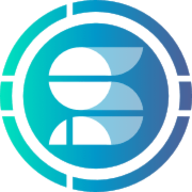

Black Duck and Scantist Software Composition Analysis compete in software composition analysis. Black Duck has the upper hand due to its advanced feature set, although it comes at a higher price.
Features: Black Duck offers comprehensive open-source management, vulnerability detection, and license compliance. Scantist emphasizes precise vulnerability tracking and effective integration capabilities. Black Duck provides a more robust feature set, particularly in open-source management.
Ease of Deployment and Customer Service: Scantist employs a cloud-based deployment model for quick setup, while Black Duck requires more extensive configuration. Scantist is known for responsive customer service, contrasting with Black Duck's slower service response.
Pricing and ROI: Black Duck involves substantial setup costs but delivers higher long-term ROI due to its feature breadth. Scantist provides competitive pricing with lower initial investment, appealing to cost-effective solutions.

Organizations use Black Duck for compliance, internal audits, license management, and security, scanning software to identify vulnerabilities, non-compliant code, and dependencies in open-source projects.
Black Duck integrates into CI/CD pipelines and DevSecOps processes, helping multiple industries detect and handle risks associated with open-source usage. Users leverage it for source and binary analysis to ensure security and compliance before software release. Automatic component analysis, effective vulnerability scanning, and a comprehensive knowledge base are some of its valuable features. Despite needing improvements in scanning speed, UI, and documentation, Black Duck remains crucial for ensuring open-source security and compliance.
What are Black Duck's most important features?
What benefits or ROI should users look for in reviews?
Black Duck is implemented by industries ranging from finance to healthcare, addressing security and compliance in open-source usage. Financial institutions employ it to manage license risks and ensure audit readiness. Healthcare organizations use it to comply with stringent data protection regulations, ensuring patient data security and privacy. Tech companies integrate Black Duck within CI/CD pipelines to maintain the security and compliance of software products before release. Its deployment varies, tailored to meet the specific risk management and compliance needs dictated by each sector's regulatory environment.
Scantist Software Composition Analysis (SCA) provides an advanced solution to identify and manage vulnerabilities in software dependencies, helping businesses maintain robust security standards through efficient tracking and reporting mechanisms.
Recognized for its efficiency in detecting vulnerabilities in software components, Scantist SCA offers thorough insights into open-source license compliance and security issues. It is a valuable tool for security analysts and developers seeking to enhance their security posture. Despite its strengths, users indicate that there is room for improvement in scalability and integration with other tools to further streamline workflows and maximize productivity.
What are the valuable features of Scantist SCA?Scantist SCA is implemented across industries such as finance, healthcare, and technology, where maintaining data security and compliance is critical. Its ability to adapt to sector-specific requirements makes it an essential asset for organizations needing to protect sensitive information and ensure regulatory compliance.
We monitor all Software Composition Analysis (SCA) reviews to prevent fraudulent reviews and keep review quality high. We do not post reviews by company employees or direct competitors. We validate each review for authenticity via cross-reference with LinkedIn, and personal follow-up with the reviewer when necessary.